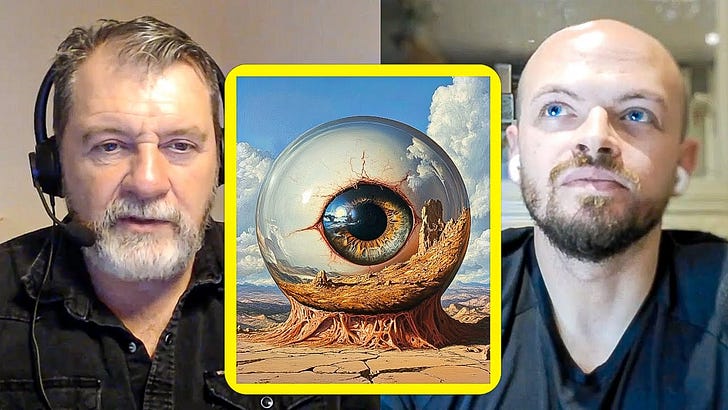How Socrates’ ‘Mirror for the Mind’ Can Transform Your Thinking
Featuring interview with Socrates expert Donald Robertson
What does it mean to truly know yourself? For Socrates, self-knowledge wasn’t just an abstract concept—it was the foundation of wisdom and the key to a life well-lived. One of his most evocative ideas compares self-awareness to an eye that can see itself, a metaphor that has intrigued philosophers and self-improvement seekers for centuries. But how do we achieve this seemingly paradoxical self-awareness? According to Socrates, the answer lies in deep, sincere dialogue with others.
This post and video explores Socrates' method of self-discovery, the pitfalls of intellectual arrogance, and why engaging with those who have nothing to prove might be the most powerful way to hold a mirror up to your soul.
Watch the full clip of
explaining this concept:📝 Notes from the video:
The Delphic Maxim: Know Thyself
At the heart of Socrates' philosophy is the Delphic maxim "Gnothi Seauton" (Know Thyself). For Socrates, this wasn’t a mere slogan; it was a lifelong mission. In Plato’s First Alcibiades, Socrates explains this maxim through the analogy of an eye that can see itself.
Just as an eye needs a mirror to observe itself, Socrates argued that the mind requires something external—a "mirror for the mind"—to gain true self-awareness. That mirror, he believed, could be found in another person. By engaging deeply with others, questioning their beliefs, and reflecting on their errors, we also confront our own blind spots and biases. This practice transforms dialogue into a tool for self-discovery.
The Power of Dialogue
Socrates saw dialogue as a way to uncover truths not just about others, but about ourselves. He approached discussions with humility, acknowledging his ignorance and seeking wisdom through genuine curiosity.
This humility allowed Socrates to learn not only from the so-called "wise men" of Athens but also from unexpected sources—tradesmen, slaves, and even prostitutes. Unlike the sophists, who charged fees for their teachings and clung to their reputations, these individuals had no illusions of wisdom to defend. Their intellectual humility made them better mirrors for Socrates’ soul, revealing truths that were often obscured by ego in his more esteemed counterparts.
The Dangers of Intellectual Arrogance
Socrates observed that those who claim to be wise are often the most resistant to genuine philosophical inquiry. Why? Because admitting mistakes threatens their reputation. Plato frequently depicts sophists and self-proclaimed wise men becoming evasive or defensive when challenged by Socrates. They changed the subject, glossed over contradictions, or launched into rehearsed speeches to avoid appearing wrong.
For Socrates, this obsession with appearing wise was the antithesis of true wisdom. Real wisdom begins with admitting ignorance—a quality he found more readily in those with nothing to prove.
Lessons from Socrates: Intellectual Humility in Modern Life
Socrates’ insights are as relevant today as they were in ancient Athens. In our own lives, we often avoid feedback or critique because it threatens our self-image. Yet, without honest reflection—whether from others or ourselves—our blind spots remain hidden.
This principle can be applied across contexts, from personal relationships to professional growth. Even in Brazilian Jiu-Jitsu, a modern discipline with philosophical undertones, this idea holds true. Practitioners who retain a “beginner’s mind” continue to grow, while those fixated on their rank or reputation risk stagnation.
How to Hold Up a Mirror to Your Mind
Seek Honest Dialogue: Engage with people who challenge your thinking. Look for those who value truth over appearances and are unafraid to question or be questioned.
Embrace Humility: Acknowledge your own ignorance. This doesn’t diminish your worth; it enhances your ability to learn.
Question Fundamental Assumptions: Like Socrates, bring the conversation back to essential questions—What is wisdom? What is justice? What is the good life?
Reflect on Feedback: When others point out contradictions or flaws in your reasoning, resist defensiveness. Treat these moments as opportunities for growth.
Avoid Intellectual Posturing: Value real understanding over the appearance of expertise.
Socrates’ metaphor of an eye that can see itself challenges us to approach self-knowledge with humility and curiosity. By engaging in meaningful dialogue, we not only uncover the limitations of others’ thinking but also reveal the blind spots in our own.
The next time you find yourself in conversation, remember Socrates’ lesson: the person in front of you might just be the mirror you need to truly see yourself.



